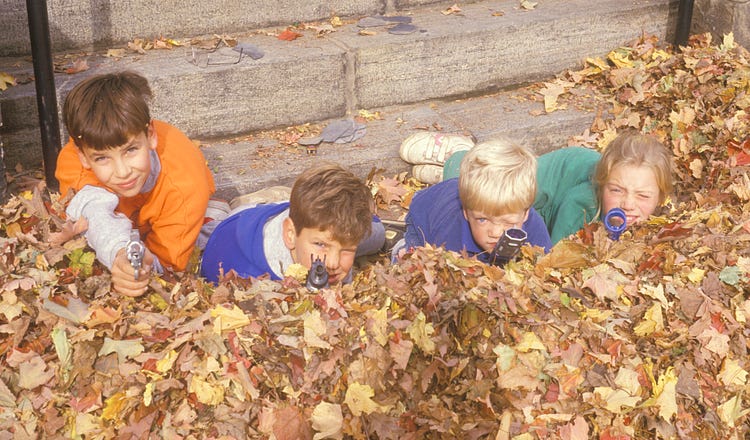David Sedaris: Punching Down

Children in autumn leaves aiming toy guns, Westpoint, NY, 1986. (Photo: Joe Sohm/Visions of America/Universal Images Group via Getty Images)
A Thanksgiving treat from the most delightful man on planet Earth.
494
It’s Thanksgiving, which for the lucky among us means eating too much turkey and pumpkin pie. For others, it means getting into arguments with your Gen Z cousin who, in a fit of rage, calls you a settler colonialist and storms out of the dining room. Happy holidays!
But whatever your Thanksgiving brings, we here at The Free Press wanted to bring you a bo…
Continue Reading The Free Press
To support our journalism, and unlock all of our investigative stories and provocative commentary about the world as it actually is, subscribe below.
$8.33/month
Billed as $100 yearly
$10/month
Billed as $10 monthly
Already have an account?
Sign In


